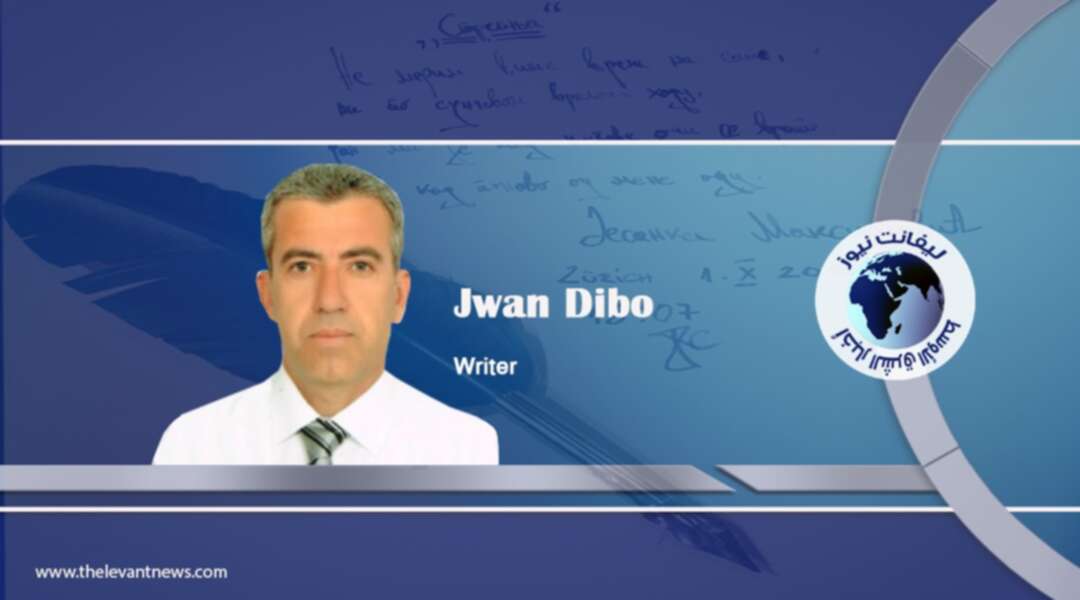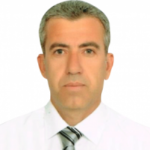-
Will the American Efforts for a Rapprochement Between Kurdish Political Forces in Syria Succeed?

Over the last few days, some Kurdish media outlets have reported that the American specialenvoy to Syria, William Roebuck, has held a series of meetings with various political forces in Syrian Kurdistan. Roback's unstated goal is to bridge the rift between different Kurdish parties
and to combine them into consensual frameworks and formulas. On this basis, the American
envoy's efforts focused on meeting with the major Kurdish parties; the Democratic UnionParty (PYD), on the one hand, and the Kurdish National Council (KNC), on the other hand.
It is possible to study and analyse the American endeavours to reconcile between the quarrelling brothers in Syrian Kurdistan, and the possibility of their success from two different angles or in two separate contexts. Firstly, understanding the real American motives behind
this initiative and itstiming. Secondly, the extent of the ability, eligibility, and readiness of the Kurdish political forces in Syria to accept and implement the American plan. The plan which
aims to mediate between the PYD that leads the Self-Administration of North and East Syria and the KNC that affiliated with the pro-Turkish, the National Coalition for Syrian Revolution and Opposition Forces, to work together in a unified front.
The American attempt in this regard is a part of U.S mysterious, unstated and unstable strategy in Syria. It indicates that the American military presence in Syria will extend for a longer period than expected, which is no longer linked to the defeat and collapse of the
Islamic State as previously declared. The military American presence in Syria has become associated to Iranian presence and role in Syria, which means that U.S presence will be prolonged, since the Iranian attendance also appears to be protracted. In order the U.S to be
able to control Iranian moves in Syria, it needs a reconciliation between Kurdish political
forces in the Kurdish regions in Syria. These regions which are considered the only and true incubator for the American presence in Syria. America in its current try to unify the Kurdish political forces in Syria is aiming to notify other players in the Syrian arena, especially Russia, that American role in the future of Syria cannot
be disregarded, and that is through Kurds and their political and military powers. Therefore, the U.S intends to prepare Kurdish political forces in Syria within a unified alliance to participate as an independent delegation in the negotiations for the final solution to the Syrian dilemma based on UN Resolution 2254. The American initiative, which has not officially announced by the White House, is an extension for the initiative launched by the commander of SDF, Mazloum Abdi, last October to settle the internal Kurdish disputes in Syria. In this
context, Evan Haseeb wrote in Al-Monitor quoting Mazloum Abdi “Remarkable progress is
being made in the process to unify the Kurdish ranks. The parties, the PYD and the rest of the political parties are being responsive to the initiative”.
Meanwhile, the US administration is talking about the imminent start of implementing the US Caesar Law for protecting civilians in Syria and applying sanctions against officials in Damascus, including the Syrian President, for war crimes against Syrian civilians. However, a series of shameful American attitudes toward the Kurds in Syria in the recent past would raise
scepticism about the seriousness and credibility of U.S in its endeavours. For instance, when the U.S turned a blind eye to Turkish occupation of Afrin in February 2018, and Ras al-Ain/Sari Kania, and Tal Abyad/Gire Sipi in October 2019. Furthermore, the ambiguity of U.S strategy regarding Syrian
issue in general, and Kurdish question in Syria in particular. In addition to the multi-faceted disagreements between the main Kurdish parties in Syria.
PYD that leads the Autonomous Administration of North and East Syria belongs to Kurdistan workers' party (PKK) and its leadership in Qandil Mountains. In contrast, KNC in Syria belongs to Kurdistan Democratic Party (KDP) in Arbil, the capital of Kurdistan region. The contentions between KDP in Erbil and PKK are long-standing, deep-rooted and numerous. Their disagreements are intellectual and political, and revolving around the Kurdish leadership in the four parts of Kurdistan.
The relations between PYD and KNC in Syrian Kurdistan have worsened since 2012 when PYD took control of the Kurdish areas in Syria after they were handed over by the Syrian regime.
In 2014, PYD announced the Self-Administration of North and East Syria, practicing exclusion, repression, and detention against some KNC activists, and locked their headquarters.
The former President of Kurdistan Region in Iraq, Masoud Barzani, tried to combine the two rivals, and later they signed several agreements in Hawler and Duhok, but the two sides later exchanged accusations of disclaiming.
It is very difficult for the American efforts to achieve understanding and unification between main political forces in Syrian Kurdistan. The reasons behind this conclusion are many and complex. The obscurity surrounding the nature of the American role and strategy in the Syrian crisis. Likewise, doubts about American credibility in dealing with legitimate Kurdish demands
and aspirations in Syria remain very high due to the Kurds bitter experiences with U.S during the past two years. Regional and international semi-consensus against the American endeavour. Turkey will strive to thwart this attempt and will seek to persuade Russia to stand against U.S efforts to unify Syrian Kurds in one front in order to force other involved players
in the Syrian calamity to accept them as an independent actor in upcoming negotiations for the ultimate solution. In addition to the nature, difficulty and intricacy of the deep-seated internal Kurdish disputes. Also, the primitive and backward mentality of the Kurdish parties and leaders who cannot prioritise public interests over personal, partisan, and factional interests.

by : Jwan Dibo
You May Also Like
Popular Posts
Caricature
BENEFIT Sponsors BuildHer...
- April 23, 2025
BENEFIT, the Kingdom’s innovator and leading company in Fintech and electronic financial transactions service, has sponsored the BuildHer CityHack 2025 Hackathon, a two-day event spearheaded by the College of Engineering and Technology at the Royal University for Women (RUW).
Aimed at secondary school students, the event brought together a distinguished group of academic professionals and technology experts to mentor and inspire young participants.
More than 100 high school students from across the Kingdom of Bahrain took part in the hackathon, which featured an intensive programme of training workshops and hands-on sessions. These activities were tailored to enhance participants’ critical thinking, collaborative problem-solving, and team-building capabilities, while also encouraging the development of practical and sustainable solutions to contemporary challenges using modern technological tools.
BENEFIT’s Chief Executive Mr. Abdulwahed AlJanahi, commented: “Our support for this educational hackathon reflects our long-term strategic vision to nurture the talents of emerging national youth and empower the next generation of accomplished female leaders in technology. By fostering creativity and innovation, we aim to contribute meaningfully to Bahrain’s comprehensive development goals and align with the aspirations outlined in the Kingdom’s Vision 2030—an ambition in which BENEFIT plays a central role.”
Professor Riyadh Yousif Hamzah, President of the Royal University for Women, commented: “This initiative reflects our commitment to advancing women in STEM fields. We're cultivating a generation of creative, solution-driven female leaders who will drive national development. Our partnership with BENEFIT exemplifies the powerful synergy between academia and private sector in supporting educational innovation.”
Hanan Abdulla Hasan, Senior Manager, PR & Communication at BENEFIT, said: “We are honoured to collaborate with RUW in supporting this remarkable technology-focused event. It highlights our commitment to social responsibility, and our ongoing efforts to enhance the digital and innovation capabilities of young Bahraini women and foster their ability to harness technological tools in the service of a smarter, more sustainable future.”
For his part, Dr. Humam ElAgha, Acting Dean of the College of Engineering and Technology at the University, said: “BuildHer CityHack 2025 embodies our hands-on approach to education. By tackling real-world problems through creative thinking and sustainable solutions, we're preparing women to thrive in the knowledge economy – a cornerstone of the University's vision.”
opinion
Report
ads
Newsletter
Subscribe to our mailing list to get the new updates!




















